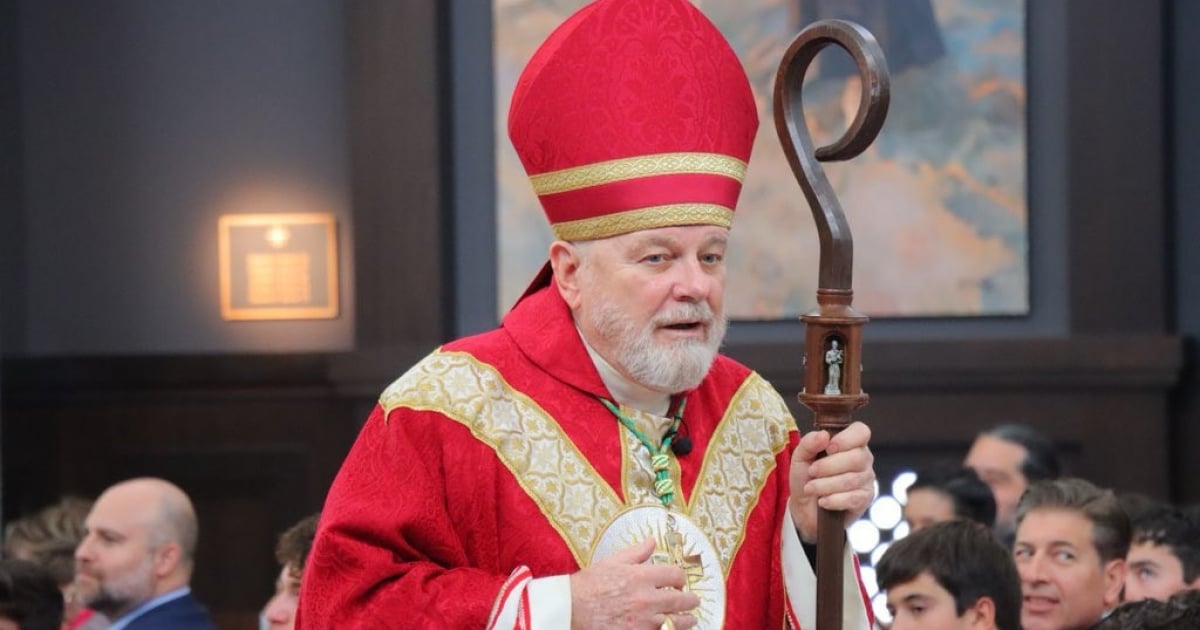In a statement issued by the Archdiocese of Miami, Archbishop Thomas Wenski voiced significant concerns about the current enforcement of immigration laws in the United States, especially following the opening of a new immigrant detention center at the Dade-Collier Airport, known as "Alligator Alcatraz." Wenski emphasized that for years, U.S. bishops have advocated for "reforms that will enhance our immigration system, uphold human dignity, and promote the common good."
The archbishop acknowledged the government's success in effectively controlling the border and dealing firmly with those who commit serious crimes. However, he pointed out that the majority of immigrants are "hardworking and honest" individuals seeking a better future for themselves and their families. He highlighted the varied legal situations of immigrants in the country, many of whom, although lacking permanent legal status, have temporary protections like TPS, parole, or pending asylum applications.
"Some (Haitians, Cubans, Venezuelans, and Nicaraguans) arrived with special humanitarian visas valid for two years, but the conditions in their home countries have not improved," Wenski explained, referencing beneficiaries of the humanitarian parole program revoked by Donald Trump.
Wenski stressed that deporting immigrants who contribute to the nation's welfare "will only worsen" the current labor shortage in crucial sectors such as healthcare, services, and agriculture. "Instead of spending billions on deporting people who are already contributing positively to our nation's welfare, it would be more financially and morally sensible for Congress, in collaboration with the Administration, to expand legal pathways" to regularize their status, he asserted.
Concerns Over Conditions at "Alligator Alcatraz"
Regarding the newly opened detention center in Collier County, Wenski urged a reassessment of immigration law enforcement progress and reiterated the "need for measures beyond purely coercive ones." He sharply criticized the use of intimidating practices and questioned the treatment of all undocumented immigrants as dangerous criminals.
"The masked and heavily armed agents who do not identify themselves during control activities are startling, as is the apparent lack of due process in deportation procedures in recent months," he remarked. He also described the rhetoric of some public officials as "intentionally provocative," particularly when referencing the presence of alligators and pythons around the detention center.
"It is inappropriate for public officials and corrosive to the common good to speak of the deterrent value of 'alligators and pythons,'" he stated. "Common decency demands that we remember that those detained are parents and siblings of families in distress," he emphasized.
Wenski also expressed concern about the physical conditions of the center: its geographic isolation, the precariousness of tent structures under Florida's extreme heat, and the lack of rapid access to medical services. Additionally, there is the potential risk in the event of hurricanes, given the facility's vulnerability.
A Call for Prayer and Ethical Commitment
Wenski urged that chaplains and pastoral ministers be allowed to attend to migrants in custody. He concluded his message with a call for compassion and spiritual action. "Pray for our government officials, for those in immigration custody and their families, for those working in law enforcement, and for justice for all in this nation, to whose prosperity immigrants have always contributed," he requested.
The archbishop's statement comes at a time of heightened debates over immigration policy, detentions, deportations, and the respect for human rights within detention centers in the United States.
Understanding the Archbishop's Concerns on Immigration
What is Archbishop Wenski's main concern regarding immigration enforcement?
Archbishop Wenski is primarily concerned about the treatment of all undocumented immigrants as dangerous criminals and the lack of reforms that uphold human dignity and promote the common good.
Why does Wenski criticize the new detention center "Alligator Alcatraz"?
Wenski criticizes "Alligator Alcatraz" for its intimidating practices, geographic isolation, inadequate physical conditions, and the provocative rhetoric surrounding its deterrent features.
What does Wenski suggest instead of deportations?
Wenski suggests that Congress and the Administration should collaborate to expand legal pathways for immigrants to regularize their status, rather than spending billions on deportations.
